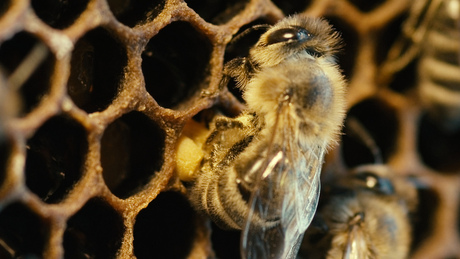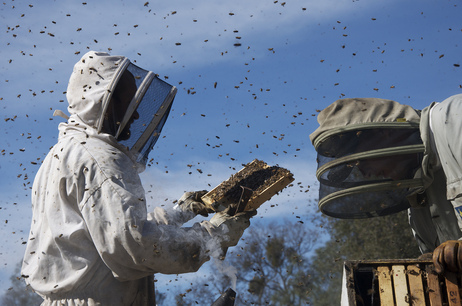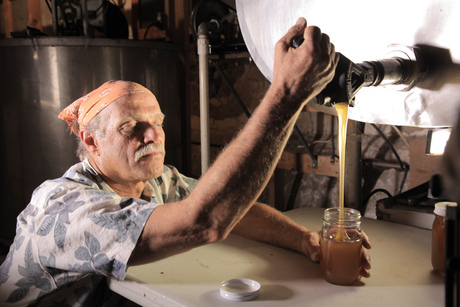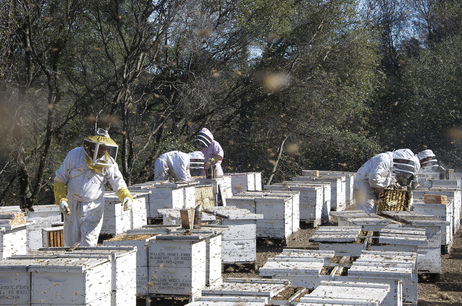|
More Than Honey (2012) is a stylised documentary from Swiss filmmaker Markus Imhoof, whose other works include the WWII drama The Boat is Full (1981) and the 1986 film The Journey which follows the motives and lives of German terrorists in the 1970s. With more experience making fictionalised films about real events than faithfully documenting events as they unfold, Imhoof lends the skill of storytelling to More Than Honey to creating a surprising amount of empathy for bees.
More Than Honey sets out to investigate the strange disappearance of bees across the globe. Between 50 and 90 percent of bee colonies have been dying out globally and no-one is quite sure why. The problem is compounded when a third of our foodstuffs are pollinated exclusively by bees and widespread food shortages are said to arise if a solution is not found. Rather than wholly trying to solve this mystery however, the documentary focuses more on the human relationship with bees and the impact we have on domesticating and farming them. We are shown the contrast between the laid-back Swiss way of beekeeping, where every hive is precious and cigar smoking is considered the best method for keeping bees docile, and the corporate American mass production of bees, where whole colonies are lost to pesticides and mechanisation as they pollinate plants for food. Neither method is lionised or demonised but rather both are shown to be reactions to supply and demand. The documentary even reveals how both methods are linked at a fundamental level due to the fact that honey bees are not native to America and thus need to be imported from Europe. The most captivating aspect of More Than Honey is its creative nature of storytelling. The documentary has the tendency to show rather than tell, slowly revealing an event from an oblique angle without narration and leaving you trying to solve the puzzle of what you are actually witnessing before it is revealed much later, all via John Hurt’s soothing tones. While this seems backwards and confusing, the result is a calming realisation of the events rather than a cacophony of facts that make More Than Honey as entertaining as any well written drama. The downside is nothing is ever explained to its fullest extent, which at times can be baffling. And yet this adds to the intuitive charm of the documentary. At no point are we patronised, pandered to or ever fed a subjective point-of-view that the makers want its audience to have, which is always a sign of a good documentary. More Than Honey is a brilliantly shot and well thought-out documentary, covering a global phenomenon in a cinematic style of canted angles and soft focus that creates a fine balance between theory and entertainment, inciting fascination around the inner workings of not only bees but our very ecosystem. |





